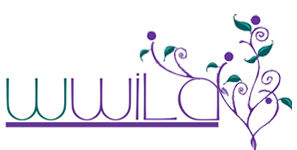Available Resources:
Mater Intellectual Disability and Autism Service (MIDAS formerly known as QCIDD)
CHAP Tool – The Comprehensive Health Assessment Program (CHAP) is designed to help minimise the barriers to healthcare for people with intellectual disability by prompting health care and screening. Developed at The University of Queensland by Professor Nick Lennox, the program is used in Australia by various state governments, other non-government organizations, and in other countries. CHAP is a tool designed to prompt a comprehensive health assessment for adults with intellectual disability. This may potentially help doctors make better diagnoses, provide appropriate treatment and ultimately ensure an overall better health. The CHAP tool is a two-part questionnaire requiring collaboration between the person with the intellectual disability, their supporter and their GP. The first part of the questionnaire creates a comprehensive health history and is completed by the parents, paid support staff and/or person with intellectual disability. The health history is then taken to the person’s GP. Working with the person and their supporter, the GP fills in the second part of the questionnaire. Here, the GP is prompted to be aware of commonly missed, poorly managed or syndrome specific health conditions and performs a review of the person’s health. On completion of the GP’s review, a health action plan should be agreed upon by the GP in collaboration with those involved in providing support or the person themselves. Available at: https://qcidd.centre.uq.edu.au/resources/chap
MacDonald, S 2008, ‘Which Way is Justice? A Practice Manual for Supporting People with an Intellectual Disability in the Criminal Justice System’, Community Living Association, Inc., Voices Project 2008,
http://www.communityliving.org.au/wp-content/uploads/2013/07/Which-way-is-justice.pdf
Women with Disabilities Victoria have created a series of videos and printed resources to improve our understanding of women with disabilities and their experiences of violence and abuse. These resources have been developed for people with disabilities and also the support workers and other health professionals that support them. Please go to this LINK to access these resources.
EAP Assist – Wellness Apps available online.
EAP Assist facilitates on-demand technology to provide highly accessible & flexible support to all employees via access to the best evidence-based, clinically-tested wellness apps free for all member employees to access. The Apps address a comprehensive range of mental health issues, including depression, anxiety & stress as well as many wellbeing issues, including resilience, confidence & sleep.
Get support online without ever needing to leave your home or workplace enhancing every aspect of your personal & professional life, providing employees with the skills to adapt to ever-changing environments. EAP Assist facilitated apps provide inspiration, cultivate resilience & strengthen skills to build strong mental health each & every day. Wellness Apps have been shown to achieve outcomes that traditional in-person therapy sessions are unable to achieve. https://eapassist.com.au/wellness-apps/
Research:
Milner, P., Kelly, B. (2009). Community participation and inclusion: people with disabilities defining their place, Disability & Society. 17 pgs,http://www.tandfonline.com/doi/pdf/10.1080/09687590802535410.
The State of Queensland. (2007). Acquired Brain Injury Outreach Service. How to Build Good Boundaries in Support Work. Queensland Health, Available at: http://www.health.qld.gov.au/abios/behaviour/professional/boundaries_pro.pdf.

